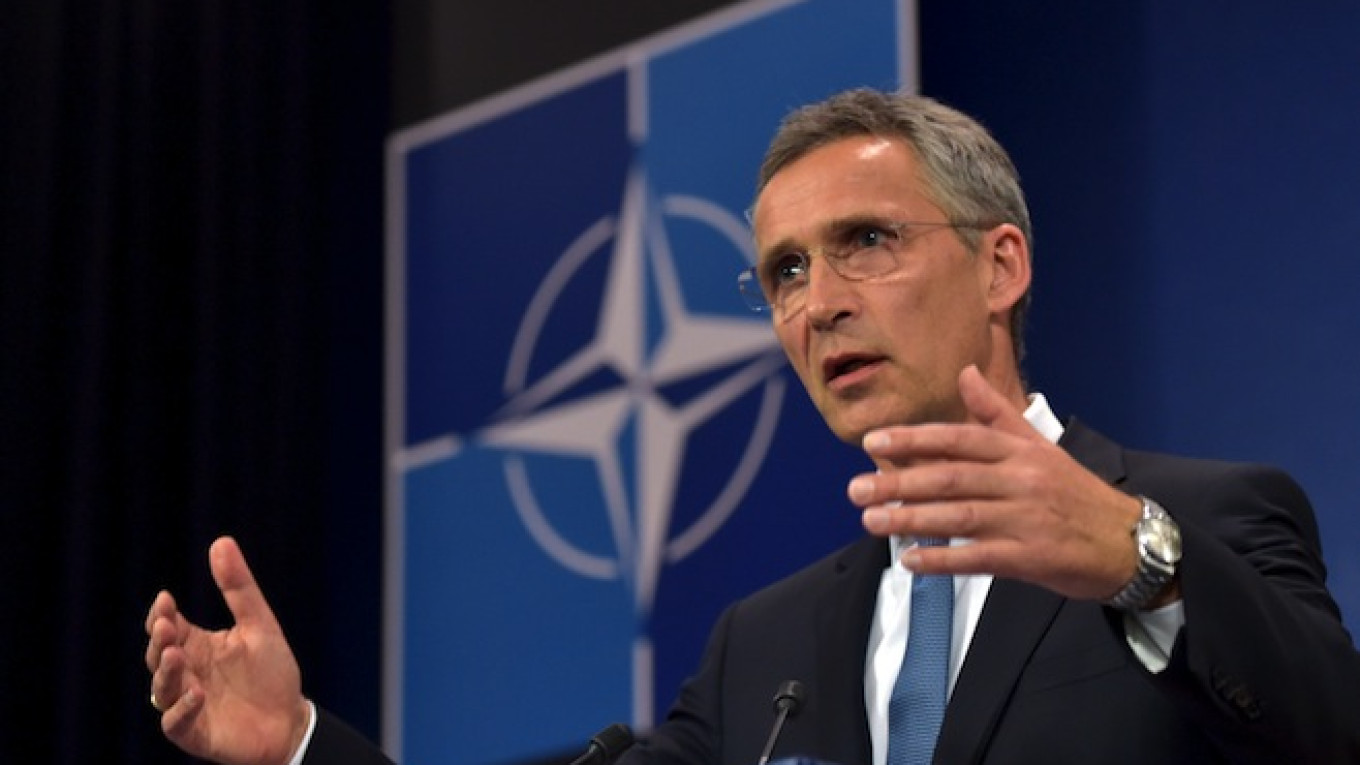With a troubled peace plan for the Ukrainian conflict nearing its deadline, NATO chief Jens Stoltenberg will attempt a balancing act to reassure Kiev of the West's support without antagonizing Moscow when he visits Ukraine on Monday.
Ukrainian diplomats say Stoltenberg's visit, his first there, is symbolic in their quest for Western integration as Russia backs a rebellion in eastern Ukraine 18 months after it seized Crimea.
They plan to sign a new doctrine in Stoltenberg's presence identifying Russia as an aggressor.
"This visit will be a milestone," said Ukraine's acting ambassador to NATO, Yehor Bozhok. "In Soviet times, we were ready for an attack from the West. Reality now demonstrates that the threat comes from the East," he said.
But Stoltenberg, a former Norwegian premier who a year into the top NATO job has toned down the strident criticism of Russia by his predecessor, is wary of raising tensions. He is highly unlikely to heed Kiev's calls for defensive weaponry supplies.
Stoltenberg sees Ukraine as the most complex of Europe's many crises and backs the 11-step Minsk peace deal signed in February that set an year-end deadline for implementation.
Stoltenberg also sees the alliance's role as mainly limited to helping rebuild the armed forces of Ukraine, which is not a NATO member, after years of mismanagement.
Ukraine dropped its bid to join the organization in 2010 to please Moscow, but now says NATO membership as the only way to protect its territory. NATO wants to avoid provoking Moscow.
Russia opposes any potential expansion of NATO to former communist areas of eastern and southeastern Europe, part of a battle for influence between Brussels and Moscow that lies at the heart of the conflict in Ukraine.
"I am really afraid that the situation can deteriorate," Stoltenberg said in July of the conflict in eastern Ukraine that has killed some 8,000 people. "That's something we have to try to avoid because the situation is demanding enough as it is."
Russian “Attack”
While violence is at its lowest ebb since the Minsk ceasefire was signed seven months ago, Ukrainian President Petro Poroshenko has warned that the decision by separatist rebels to hold their own elections could invalidate the whole peace plan.
Poroshenko is also under pressure from Europe to reform faster to receive potentially billions of euros in donor funds.
"The list of things Ukraine needs to do is endless. You can always do more. But on the other side [Russia], the list hasn't even begun to be filled in," said a senior EU diplomat whose government is among those most critical of Russia's actions.
In another sign of his balancing act during his two-day visit, Stoltenberg will inaugurate exercises between Ukraine and NATO, but they are not military, rather civil protection.
In the pro-European west of the country, they will focus on de-mining, forest fires and a simulated blast at a factory.
Still, Stoltenberg will be the first NATO secretary general to sit in on a National Security and Defense Council meeting in Kiev, Ukraine says, and will likely witness Poroshenko sign the new military doctrine into law.
The doctrine "defines the Russian Federation as a military adversary" and "assumes the high probability of large-scale use of military force against Ukraine," a statement says.
Stoltenberg will also oversee the opening of a bigger NATO liaison office in Kiev with full diplomatic status.
Yet even that gesture brings complications. The office has been described by Ukrainian Foreign Minister Pavlo Klimkin as a new "NATO embassy," underscoring the country's long-term aspiration of joining the U.S.-led alliance.
Many Russians defend Russian President Vladimir Putin's annexation of Crimea, saying it was needed to stop U.S. ships moving in there if Ukraine becomes a NATO member.


